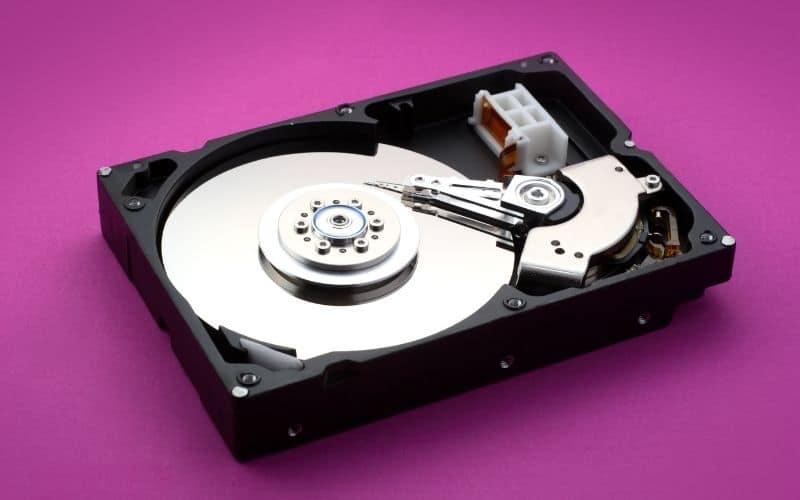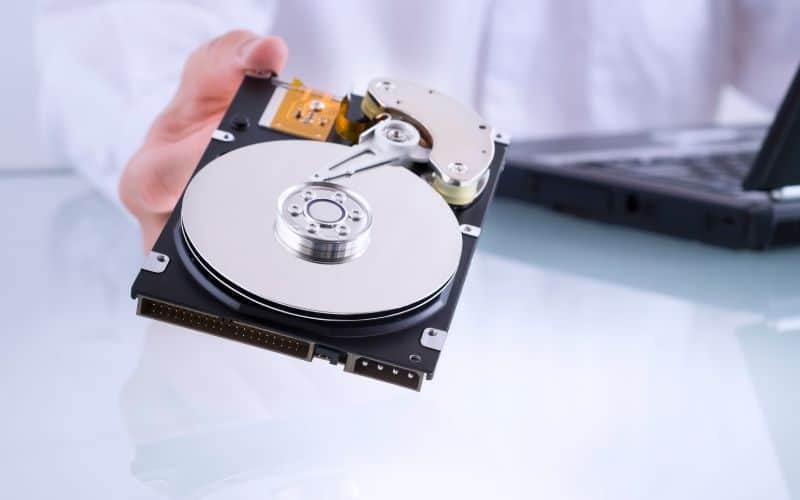What Is A Hard Drive?

Table of Contents
In the days of this technological optimization everyone is a computer expert and well versed in data laws. Yet, many of us understand that these things can affect use greatly, especially personal data protection.
But, part of being aware and educated about data privacy can often require the understanding of the relevant bits of hardware to understand how to truly protect ourselves.
Moreover, many people simply want to learn about a hard drive if they are making their own computer or are just interested.
Here's our simple guide to what a hard drive is, read on to learn more about computers and data.
What Does A Hard Drive Do?
Put simply, a hard drive is a piece of hardware that is a physical and non-volatile form of storage.
Basically any file you create on your computer, any application storage, or information contained in your operating system is physically contained within the hard drive.
To understand how this works you need to understand the operation of the physical components.
A hard drive has something known as a platter, which is a large, thick, metal wheel that looks like a small CD.
Like a vinyl player, there is an arm above the platter which writes and reads all the information on your computer.
The platter rotates while the arm also moves in order to read this information at lightning quick speeds, this is often referred to as ‘processing power'.
Advantages Of A Hard Drive

Hard drives are pretty ideal pieces of hardware. Their physical function allows them to work at great speed and also makes them much more durable than certain bits of software.
Large amounts of data can be stored effectively within a hard drive and they remain fairly cheap in comparison to other physical components.
Disadvantages Of A Hard Drive
In a logistical sense, a hard drive can be at a disadvantage as they don't write data sequentially.
An indexing system allows the arm to find data even though it is fragmented. This can take longer than if data was written sequentially.
As data is not written sequentially this can lead to issues further down the line when data can become fragmented thanks to the physical operation of the hard drive.
The physical nature of a hard drive can make them fairly durable when used properly. However, even minute physical damage can lead to incorrect operation.
Hard drives can often overheat when working too hard as the power they use can turn into heat.
This often occurs in laptops, as they are a portable device if you drop your laptop even a little while the hard drive platter is spinning this minute physical damage could cause some irreparable damage to the hard drive.
Moreover, all your data is physically stored on the hard drive, even after you are done with a computer.
In other words, you have to very carefully and purposefully dispose of a hard drive by physically wiping it through making the data unreadable.
Many people throw their computers away without knowing this, check out our article on how to dispose of a hard drive safely.
Final Thoughts
As you can see a hard drive is a complicated piece of physical hardware. There are other facets to a hard drive that can warrant explanation in a more in depth look at a computer's workings.
However, to keep things simple, a hard drive can be explained as one of the main places where your data is stored within your physical computer.
Damaging a hard drive can be irreparable; damaging a hard drive can often be the only way to wipe your data from a computer.
